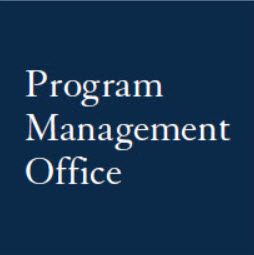UCSF CI Toolkit
Lean References, 1 Point Lessons and Templates
General
What is Lean? Lean is a system of thinking and acting that increases value, reduces waste, shows respect for people and promotes continuous improvement.
- 4P Lean Principles
- Identifying Waste (Tim U Wood)
- Metrics & Run Charts
- Plan-Do-Check-Adjust (PDCA)
Problem Solving
The problem solving method commonly used at UCSF is A3 Thinking. This disciplined practice helps to unravel a messy situation by looking at problems to understand the root causes before taking action, which results in fewer hopeful activities and more meaningful improvement work.
- UCSF A3 Template and Quick Guide- PowerPoint
- UCSF A3 Template and Quick Guide- Microsoft Word
- Problem Statements
- Target Conditions
- Process Mapping
- Root Cause Analysis (includes Fishbone Diagram, 5 Whys)
- Pareto Analysis- a technique that helps prioritize types of problems or causes
Implementing Countermeasures
Once you've identified your root cause(s), you can start to experiment with ways to address the problem. The term "countermeasure" is used rather than "solution" to prevent the solutions-thinking mindset that changes are permenent resolutions to problems. The concept of a countermeasure encourages an A3 thinking mindset with a focus on continuous improvement. Many PDCA cycles may be needed to address a root cause and/or additional root causes by taking into account new information or environment changes.
- Impact Effort Analysis (PICK Chart)- A simple, visual way to help prioritize countermeasures
- Action Planning- a visual way to clarify roles and responsibilities and encourage accountability
- 5S- Philosophy of organization, standardization, and sustaining a high performing work environment
- Standard Work- a detailed description fo the current best practices or performing a particular process or task
Coaching
- Coaching Kata- a set of routein questions that aim to help develop coaching skills for the person asking and help guide learners through the improvement cycle
- Catchball
- Lean Glossary
Project Management Resources
- Project Charter
- RACI/ RASCI
- RAPID
Facilitation Resources
Facilitator's Guide
The "Facilitator Tool Kit" was developed by the Office of Quality Improvement at the University fo Wisconsin-Madison. It is a comprehensive, easy-to-use guide to tools, methods, and techniques for assisting groups with improvement projects. Clear directions lead the reader through the selection and application of practical tools that have been tested with university groups
Download the Facilitator Tool Kit (PDF)
Group Norms
The PMO created the "Group Values and Agreement for Working Together" guidelines based off of the Inclusive Teaching page of University of Michigan's College of Literature, Science and the Arts. Introduce these guidelines at the beginning of your facilitated activity and post them in a place that is easy to refer back to.
DEIA_AR: SMARTIE Goals
Building on SMART Goals, SMARTIE goals add a layer of Inclusivity and Equity to ensure traditionally marginalized people are included in the process and there is an element of fairness that seeks to address the systemic inequities.
